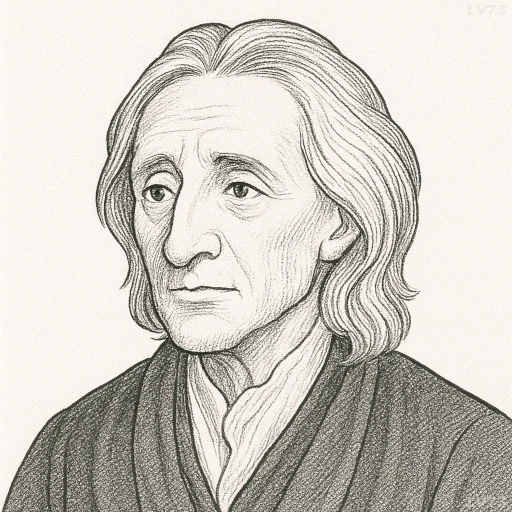“To prejudge other men’s notions before we have looked into them is not to show their darkness but to put out our own eyes.”

- August 29, 1632 – October 28, 1704
- Born in England (UK)
- Philosopher and political thinker
table of contents
Quote
“To prejudge other men’s notions before we have looked into them is not to show their darkness but to put out our own eyes.”
Explanation
In this quote, John Locke warns against the dangers of prejudging or assuming the validity of others’ ideas before fully understanding them. He suggests that to reject or dismiss someone else’s beliefs without giving them proper consideration is not only unfair to those ideas, but it also limits our own understanding. By refusing to explore different perspectives, we effectively blind ourselves to the possibility of gaining deeper insights or knowledge. Locke’s statement emphasizes the importance of open-mindedness and the need to approach ideas with curiosity and critical thinking, rather than closing ourselves off to viewpoints simply because they are unfamiliar or different.
Locke’s philosophy, particularly in the context of his empiricism and his advocacy for the use of reason to evaluate ideas, aligns with this call for intellectual humility. During his time in the 17th century, there were often rigid or dogmatic views on religion, politics, and philosophy, and Locke championed a more tolerant and reasoned approach to understanding complex issues. He believed that individuals should approach differing opinions with a willingness to learn, to examine evidence, and to challenge their own assumptions in the pursuit of truth. Prejudging others’ notions prevents this rational inquiry, and instead of shedding light on the subject at hand, it clouds our judgment and restricts our ability to grow intellectually.
In modern times, Locke’s observation is still highly relevant, especially in a world where social polarization and echo chambers often encourage people to make quick judgments about others’ beliefs without considering them thoughtfully. Whether in political discourse, social media debates, or even in personal relationships, the tendency to prejudge can prevent productive dialogue and understanding. Locke’s quote encourages us to challenge this habit and embrace a more thoughtful and open approach, where we strive to understand others before forming judgments. In doing so, we not only improve our own understanding but contribute to more meaningful and constructive conversations.
Would you like to share your impressions or related stories about this quote in the comments section?
